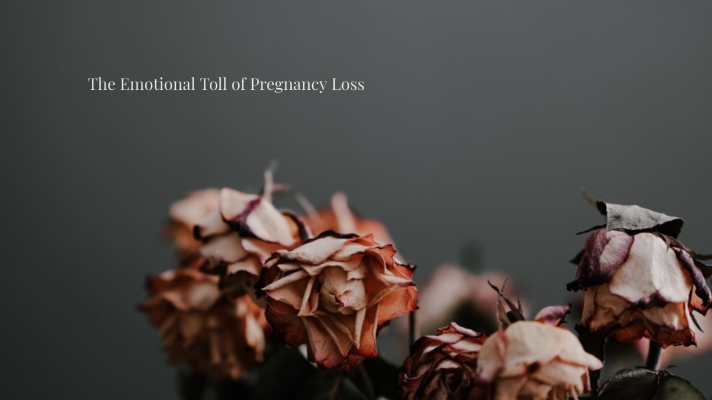October is Pregnancy and Infant Loss Awareness Month. Pregnancy loss is common (about 1 in 4 known pregnancies end in miscarriage) and every pregnancy loss is different. There is no right or wrong way to feel. Many women and men are shocked by their emotions; the loss of a baby in pregnancy can be a devastating, frightening, and lonely experience. At the same time, it is also not a major event for everyone…
Miscarriage is defined as pregnancy loss before 20 weeks’ gestation. You might have miscarried in the first few weeks of pregnancy, or several weeks. You might have had an ectopic pregnancy or a molar pregnancy. You might have suspected that something was very wrong, or it may have come as a complete shock. This may have been your first pregnancy, or this may not be the first time it has happened. Some will want to talk about it, while others want to pretend that it did not happen.
How you feel will depend on your circumstances, your experience, and what your pregnancy meant to you.
On top of that, a woman who has just miscarried is going through hormonal shifts as her body readjusts. This may intensify the emotions you are already feeling. But whatever the circumstance, it is very common to feel any number of the following:
- Disappointed
- Shocked and numb
- Confused
- Anger or denial
- Jealous
- Guilty and shameful
- Lonely
- Anxious and depressed
Some women even experience physical symptoms from their emotional distress. These symptoms include:
- Fatigue
- Trouble sleeping
- Difficulty concentrating
- Loss/Increase of appetite
- Broken relationships with family or friends
Or, if you do not feel or experience any of these things, that is okay, too. There is nothing wrong with you.
Regrettably, for women and couples who are particularly hurt by their miscarriage, it can be wrongly conveyed that they should not feel such a sense of loss. (This attitude is common when the miscarriage occurs early in pregnancy, as is common.) But an early loss is not necessarily easier to handle than one later in pregnancy. Allow yourself and your spouse to experience the grieving process in your own way and at your own pace. It is common to feel fine one day and terrible the next.
Sharing and comparing experiences with others who have been through the same thing is reassuring and comforting. You may be astounded to find out how many others have experienced this same emotional roller coaster. But if what you are feeling starts to interfere with your ability to get along in daily life, or if your sadness does not lessen after a couple of months, talk with your health care provider or therapist.
If you have recently experienced a miscarriage or pregnancy loss, or have in the past, these resources may help:
Parents or other family members who have experienced the loss of a baby between conception and the first month of life can receive a free March of Dimes bereavement kit by contacting the Fulfillment Center at 1-800-367-6630 or at bkit@marchofdimes.org
Resources Websites:
Many families have found joy after a miscarriage through the miracle of embryo adoption! To learn more about embryo adoption and donation, visit EmbryoAdoption.org.


Recent Comments